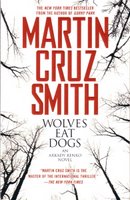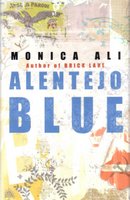John Ezard
Wednesday June 7, 2006
The GuardianZadie Smith's novel
On Beauty last night triumphantly passed the "desert island" test of a good read by winning the £30,000 Orange prize for fiction. After a record three-hour judges' meeting, she narrowly beat exceptionally strong contenders by Hilary Mantel and Sarah Waters to take the first major literary award to match her prodigious celebrity.
She had the additional joy of finally winning the prize which first gave her recognition. She broke into the limelight as a 25-year-old when her debut - the exuberantly youthful, instantly bestselling
White Teeth - was shortlisted for the Orange.
On Beauty is the fruit of her early maturity and of her marriage to the poet Nick Laird.
The title had been around long enough to risk looking over-familiar and slightly bedraggled to judges. It came out in September, with its publisher's eyes on last year's Man Booker prize. However, it failed to win that or the subsequent Whitbread prize. Though it took the Eurasian honour in this year's Commonwealth Writers contest, the Orange was its last hope of a mainstream award.
The result leaves at least one of the defeated contenders,
The Night Watch, Sarah Waters' story of heroism and love among women on blitz duty during the second world war, to go through with a formidable chance of winning this year's Man Booker or Whitbread in months to come.
On Beauty won the Orange partly because its familiarity worked in Smith's favour; the judges found it repaid repeated re-readings better than any of the five other works on the shortlist. The chief judge, Martha Kearney, Newsnight editor and Woman's Hour presenter, said: "One judge said at our meeting, 'If you are looking for one book to take to a desert island, that has to be the one'.
"Not everyone was persuaded of its merits. But I think two judges felt that, the more you read
On Beauty, the more you found in it. It was an exceptionally good shortlist and everyone had a lot to say. It got very difficult narrowing the choice."
The judges' formal accolade said: "This is a book which combines extraordinary characterisation with skilful and seemingly effortless plotting. It ranges from exposing the intimacies of family life to broader themes of aesthetics, ethics and the vagaries of academe in a literary tour de force."
Kate Mosse, Orange prize co-founder, said: "It was a quite staggeringly high standard of debate - and no arguments at all among the judges."
It was also remarkable that four on the shortlist - Zadie Smith, Mantel, Waters and Ali Smith for
The Accidental - were recognised as "leading writers in English literature the world over" though they had published so few novels.
The result pleased bookshops, where the winner has already done well. Jasper Sutcliffe, senior fiction buyer at Foyles of London, called
On Beauty "an immensely stylish and evocative novel which confirms Zadie Smith as one of our brightest literary stars.
"Her gift for character is remarkable and should convince anyone who has dismissed her as overhyped in the past. Zadie has one eye on contemporary life and the other on literary heritage. A lethal combination."
The story, about an African-American-English academic family at loggerheads, has been called a cross between Malcolm Bradbury and EM Forster. It is Smith's homage to Forster, on whom she has written a long critical study. Through Forster, the novel explores the Bloomsbury group's sense of the "interiority" of human beings as they intersect with the public selves of other people, and with society.
Simon Robertson, chief fiction buyer for Waterstone's, said: "To attempt to bring a novel of the scope and power of
Howard's End into the 21st century is an incredibly brave thing to do, but she manages. We are thrilled to see Zadie Smith receiving this long deserved recognition.
On Beauty is a wonderful novel, proving beyond doubt that the promise of
White Teeth was no fluke.
"Zadie has had remarkable commercial success from day one, but I think this - long deserved - seal of approval will prove very popular with our customers."
Hilary Mantel's
Beyond Black - unofficial runner-up to
On Beauty - is by an author often considered to have touches of genius. It is a mordant comedy about a genuine spirit medium who is haunted by the psychic remains of those who abused or cared for her as a child.
Also shortlisted were
Everyman's Rules for Scientific Living, by Carrie Tiffany, and Nicole Krauss's
The History of Love.
 60. At Canaan’s Edge, Taylor Branch. History, 6-29 , p. 771
60. At Canaan’s Edge, Taylor Branch. History, 6-29 , p. 771 







